
This is a list of notable events in music that took place in the year 1944.
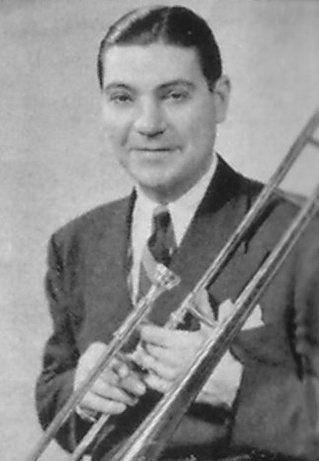
Weldon Leo "Jack" Teagarden was an American jazz trombonist and singer. According to critic Scott Yanow of Allmusic, Teagarden was the preeminent American jazz trombone player before the bebop era of the 1940s and "one of the best jazz singers too". Teagarden's early career was as a sideman with the likes of Paul Whiteman and lifelong friend Louis Armstrong.
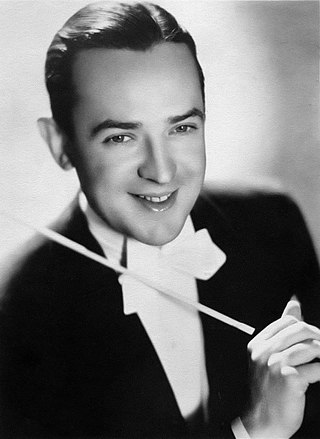
James Francis Dorsey was an American jazz clarinetist, saxophonist, composer and big band leader. He recorded and composed the jazz and pop standards "I'm Glad There Is You " and "It's The Dreamer In Me". His other major recordings were "Tailspin", "John Silver", "So Many Times", "Amapola", "Brazil ", "Pennies from Heaven" with Bing Crosby, Louis Armstrong, and Frances Langford, "Grand Central Getaway", and "So Rare". He played clarinet on the seminal jazz standards "Singin' the Blues" in 1927 and the original 1930 recording of "Georgia on My Mind", which were inducted into the Grammy Hall of Fame.

Ben Pollack was an American drummer and bandleader from the mid-1920s through the swing era. His eye for talent led him to employ musicians such as Benny Goodman, Jack Teagarden, Glenn Miller, Jimmy McPartland, and Harry James. This ability earned him the nickname the "Father of Swing".

Ruby Pearl Elzy was an American operatic soprano. She appeared on stage and in films. She recorded on albums before her death in her 30s from surgery to remove a benign tumor.

The Dorsey Brothers were an American studio dance band, led by Tommy and Jimmy Dorsey. They started recording in 1928 for OKeh Records.
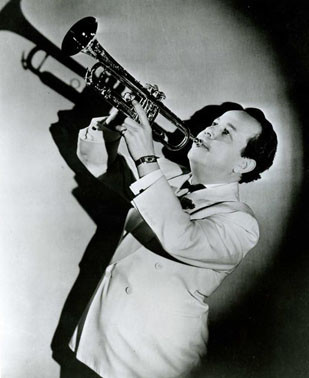
Henry Busse Sr. was a German-born jazz trumpeter. A 1948 review in Billboard magazine said that Busse had "a keen sense of musical commercialism".
Joseph Hilton "Nappy" Lamare was an American jazz banjoist, guitarist, and vocalist.

Michael Joseph O'Sullivan was an American jazz pianist.

"Basin Street Blues" is a song often performed by Dixieland jazz bands, written by Spencer Williams in 1928 and recorded that year by Louis Armstrong. The verse with the lyric "Won't you come along with me / To the Mississippi..." was later added by Glenn Miller and Jack Teagarden.
"What a Little Moonlight Can Do" is a popular song written by Harry M. Woods in 1934. In 1934, Woods moved to London for three years where he worked for the British film studio Gaumont British, contributing material to several films, one of which was Road House (1934). The song was sung in the film by Violet Lorraine and included an introductory verse, not heard in the version later recorded by Billie Holiday in 1935.
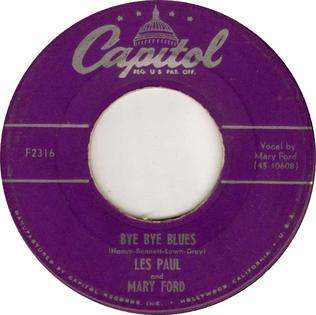
"Bye Bye Blues" is an American popular and jazz standard written by Fred Hamm, Dave Bennett, Bert Lown, and Chauncey Gray and published in 1925.

Nick Fatool was an American jazz drummer.

Ernesto Caceres was an American jazz saxophonist born in Rockport, Texas. He was a member of the Glenn Miller Orchestra from 1940 to 1942.

"Mississippi Mud" is a 1927 song written by Harry Barris, first sung by Bing Crosby as a member of Paul Whiteman's Rhythm Boys. Its musical composition entered the public domain on January 1, 2023.

Donald Douglas Lamond Jr. was an American jazz drummer.
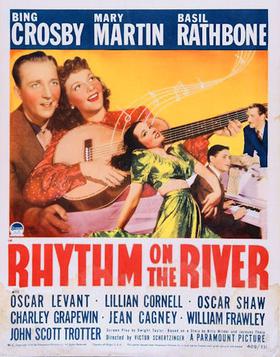
Rhythm on the River is a 1940 American musical comedy film directed by Victor Schertzinger and starring Bing Crosby and Mary Martin as ghostwriters whose songs are credited to a composer played by Basil Rathbone. Crosby and Martin sang "Only Forever", for which James V. Monaco (music) and Johnny Burke (lyrics) were nominated for the Academy Award for Best Original Song.

"Darktown Strutters' Ball" is a popular song by Shelton Brooks, published in 1917. The song has been recorded many times and is considered a popular and jazz standard. There are many variations of the title, including "At the Darktown Strutters' Ball", "The Darktown Strutters' Ball", and just "Strutters' Ball".
"Baby Won't You Please Come Home" is a blues song written by Charles Warfield and Clarence Williams in 1919. The song's authorship is disputed; Warfield claims that he was the sole composer of the song.
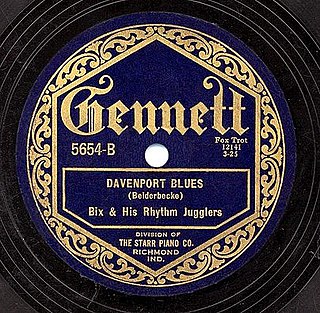
Davenport Blues is a 1925 jazz composition written and recorded by Bix Beiderbecke and released as a Gennett 78. The song has become a jazz and pop standard.

















